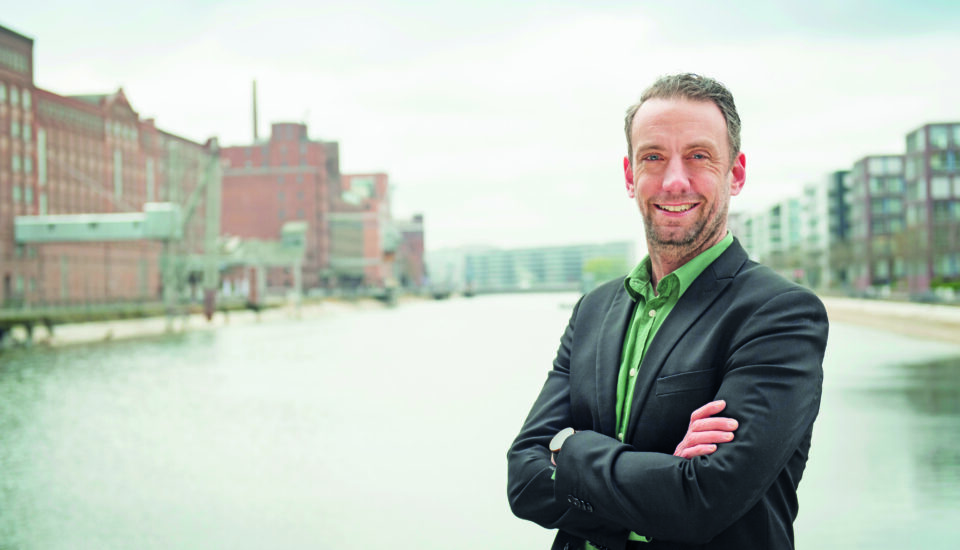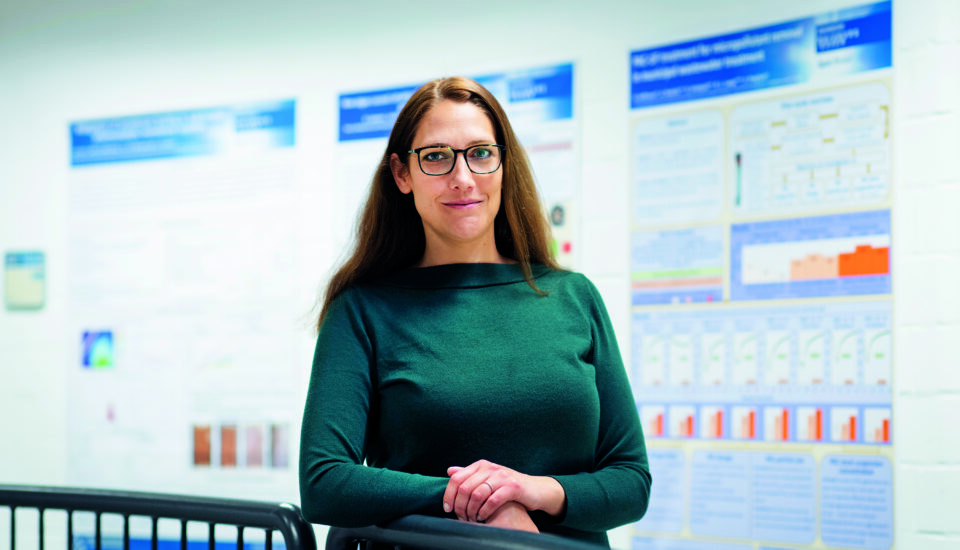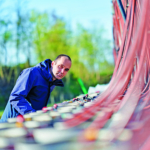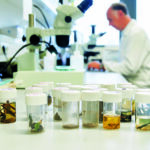Future Water
Energy source, pollutant collector, elixir of life, cause of conflicts – water is so diverse. All these facets come together in a research group. By Katrin Koster
Just turn on the tap and there’s clean water. We often wallow in this luxury without thinking. But even in a country where water abounds there can be regional and seasonal shortages. And occasionally water causes a lot of damage. Water management is complex – the collaborative research group FUTURE WATER is dedicated to studying its many aspects.
Funded by the North Rhine-Westphalia Ministry of Culture and Science, FUTURE WATER was founded in 2014 and is coordinated by the Centre for Water and Environmental Research (ZWU). FUTURE WATER is interdisciplinary and combines expertise from engineering, chemical, economic and social science approaches in its water research. Ever more intensive use of the liquid resource by humans is causing significant changes to rivers, lakes and ground water. This gives rise to all kinds of hazards such as more frequent heavy rain – a result of climate change – and concentrations of pollutants in surface waters. So solutions need to be developed holistically.
Twenty-eight PhD students have analysed complex questions at the collaborative research group FUTURE WATER and regularly exchanged ideas, in tutorials, on shared visits to trade fairs or during the research workshop focusing on areas of water management. Four projects are still under way.

Is it possible to transfer promising structures?
One member of the research group is Frederik Brandenstein, born in 1980. A political scientist whose themes were science management, administrative policy and the way our society is changing, he never thought that he would be involved with the versatile element. Today, he studies the relationships between politics, administration, the economy and the public sector for his project ‘Water management policy networks in North Rhine-Westphalia’.
‘We’ve around 11,000 local authorities in Germany – so naturally what works well in one place is far from standard in another.’ Brandenstein offers an example, ‘A climate-sensitive city like Wuppertal has a different administration than somewhere like
a small community on the Lower Rhine.’ And each has different basic requirements: one maybe has ecologically restored waterways already, another has lots of hard surfaces, a third experiences frequent heatwaves.
So how can climate measures still be implemented everywhere – and suit each region? And who pays? It’s a complex political and administrative task that brings together many different interests. Demand for the resource clashes with risk prevention and the local water infrastructure. It is also hard to evaluate the demographic, climatic and urban developments in each region.
Brandenstein knows how political and administrative solutions come about. Through FUTURE WATER, he is now learning about water management structures, and the structural diversion of rainwater or hazard prevention. ‘Catastrophes often arise from a chain of events – as happened with the flood disaster of the river Ahr. It hit communities that had never thought they would be destroyed.’
He wants to discover how solution-oriented networks function and how they can be guided politically. To do this he is reviewing documents, conducting interviews and writing a survey.
Can a closed water cycle succeed?
Another member of FUTURE WATER, Juliane Bräcker, born in 1984, directed her attention towards water from an early stage: she studied Water Science at the UDE and is sure ‘that there will be challenges to water management, even if it’s well-positioned in this country.’ Until now water has for many been something that appears out of the tap and then disappears.
But where does it go and what happens next? The focus of her ‘Concept study for the development of a regional water cycle’ is the treatment and recycling of the resource in order to reduce demand for surface water. The EU Water Framework Directive requires all surface waters to be in a ‘good condition’ by 2027. Bräcker is look- ing even further: is it possible to close the cycle – from municipal wastewater through to usable or even potable water? Advanced treatment, pharmaceutical residues and pollutant discharge are as much a part of her vocabulary as geology or the settlement structure. She’s concerned with technical, ecological and (socio-)economic effects.

However, Bräcker isn’t in the laboratory either but instead analyses international processes, quality parameters and other conditions from large-scale water reuse plants. This includes looking at Namibia and the USA, where they are already further on with this. In collaboration with the water board Emschergenossenschaft a case study is conducted for a defined area in North Rhine-Westphalia. Bräcker researches how sewer systems and advanced treatment need to be designed and how the concept could eventually be transferred to other regions.
The timescale for this: at least 50 years. That means that thought must also be given to the transition to a modern system. One difficulty is forecasting water demand in several decades’ time. ‘Our water consumption has fallen in the past decades and the quantities that are used in industry are hard to predict.’ It sounds complicated and fascinating all at the same time. Bräcker is confident, ‘regardless what happens, we’re in tune with the times and together with the others in the centre we’ll help to cast fresh light on water management in one way or another.’
Given all her expert knowledge – does she drink tap water herself ? ‘There’s nothing better,’ says Bräcker, with one restriction, ‘You should always let the water run until it’s really cold – then you get the top quality in your glass or cup.’



